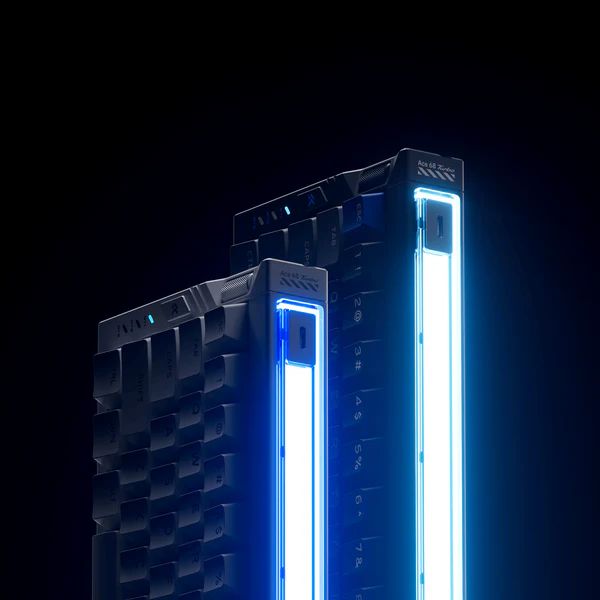Fans of absolutely asinine technological overkill rejoice. Your keyboard has arrived. May we present the MCHOSE Ace 68 Turbo, the world’s first keyboard with a 16 kHz polling rate.
What possible benefit could this have, you ask? Well, lower latency is the obvious answer. In other words, less lag between stabbing a key and having something happen in-game and on-screen. The question is, of course, at what point does lower latency become undetectable to human senses?
According to MCHOSE itself, the 16 kHz version of the Ace 68 Turbo only improves latency over the (presumably cheaper) 8 KHz variant by 0.02 ms, with the Turbo sitting at 0.06 ms rather than 0.08 ms. So, we are talking about hundredths of a millisecond. Can anyone actually feel that?
Cue an army of twitch gamers pointing out the huge benefits of 8 kHz mice and how they couldn’t possibly slum it with—eugh!—a 4 KHz rodent. Or whatever.
Likewise, it wasn’t that long ago that the idea of a, say, 500 Hz monitor seemed a bit silly. Surely anything beyond about 240 Hz was beyond human perception? Well, that no longer seems to be the case. And yet, I’d still take some convincing that there’s real-world benefit in a 16 kHz keeb.
There is, of course, the thorny issue of CPU performance in association with very high peripheral polling rates. 8 kHz mice, for instance, are known to induce noticeable CPU load. So, if the price you pay for lower keyboard latency is higher overall game engine latency, that hardly makes sense.

However, according to one well-respected authority, high polling rates for keyboards don’t necessarily pose the same performance problems as mice. To quote keyboard specialist Wooting in relation to its 8 kHz-capable 80HE keyboard:
“In our testing we haven’t measured any performance issues or a significantly increased CPU load. Mice that poll at 8k are constantly sending relative position data updates to the computer which is known to cause increased CPU load, whereas the data stream sent by keyboard polling is very different. A PC should have no issues running the Wooting 80HE at 8 kHz. It is however possible to lower the polling rate of the keyboard.”
Of course, 8 kHz isn’t 16 kHz and perhaps at some point keyboard polling rate could become an issue.
For the record, the MCHOSE Ace 68 Turbo also sports a dual-core CPU, a 4-layer PCB, and Rapid Trigger switches with an accuracy of 0.001 mm. So, now you know.
Then there’s the CNC-milled aluminium housing, Hall effect sensors and a dynamic RGB lightbar. When you factor all that in, the Ace 68 Turbo is not oppressively pricey at $99. So, if the polling rate is a gimmick, at least you’re not paying massively for it.


